PART 5: The Very Best
These albums are all deeply meaningful and personal to me; they became a part of my life that runs down to the core of my being, and led me to belong lifelong fans of these bands and see them many times. 15 or even 20 years later, they remain frequently in my listening rotation. Out of everything on this list, these ten albums will tell you who I am.
10. The Exploding Hearts 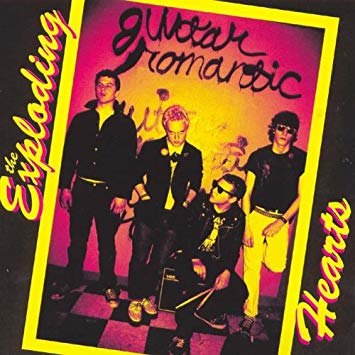
Guitar Romantic
2003
Rare does a band step out fully formed, capable of both impressive musicianship and raw and real emotion. Guitar Romantic is exactly the right title for this album, and its stories of lonely losers looking for love, punks living on the cheap but who still harbor deep romantic visions inside. This album is rich and alive and is, perhaps, the best throwback to the punk-pop of the late 70s and early 80s, influences from the Clash to the Soft Boys to the Only Ones visible throughout this album. There’s a ton of great musicianship on this album; while the structure of the songs is firmly rooted in pop-punk, the skill on the instruments goes well beyond the requirements for the genre, and singer Adam Cox’s vocals communicating the urgency and passion of the intense, hypersensitive young man in a way few if any other singers could do or were doing at the time.
Tragedy meant we’d never see another album from this band, as three of the four members were killed in a touring van accident in 2003. For one moment in time, though, the Exploding Hearts set the world aflame with an album that’s every bit as good today as it was sixteen years ago. Rarely do such vital records come along– and for me, rarer still that they come in the style I perhaps most love and dreamed once of being a successful musician in, myself.
Best song: Everything here is just bursting with life and emotion, but the young me– nervous, self-sabotaging, a poet’s sensitivity and passion with the deep insecurity of not knowing if one even belonged in the world– has never found such a perfect expression of that phase and that feeling as “I’m a Pretender.”
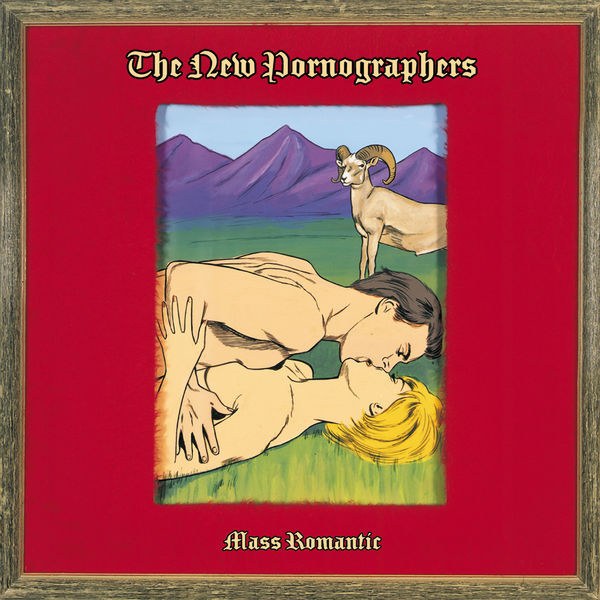 9. The New Pornographers
9. The New Pornographers
Mass Romantic
2000
8. The New Pornographers
Twin Cinema
2005
It’s always been difficult to separate these two for me. Mass Romantic has an urgent energy to it that Neko Case (doing her best work ever for the band on that first disc) elevates to another level on the best songs; Twin Cinema is more of a galactic adventure, journey of a spirit aflame. I’ve always loved power pop, and the songs of Carl “A.C.” Newman have spoken to me more than almost anyone else’s, particularly of his peers. (No slight intended to Dan Bejar, but Newman writes almost all of the songs and almost all of my favorites.) Twin Cinema has more great tunes and so just edges out Mass Romantic for me, but both of these are absolutely essential.
I dunno what it is about The New Pornographers’ work, but the metaphors and allusions and hints of legends elsewhere untold always lit up my radar. Many of my favorites in this section have those songs that hint at worlds untold, the unseen parts of the soul, that resonate on a frequency that wakes one up and brings it into being. Whether in MR‘s “Execution Day” or “Centre For Holy Wars,” or on TC in the choruses of “Sing Me Spanish Techno” or “Jackie, Dressed in Cobras,” their best songs always had a feel of more going on underneath the surface. Traveling at godspeed, over the hills and trails…
Even the less in-an-interstellar-burst-I’m-back-to-save-the-universe songs were great pop songs, unique and energizing, from “Letter From an Occupant” to “Use It” and so many others. The New Pornographers were the defining power-pop band of the 2000s, and with these two albums more than any other, they demonstrated exactly why.
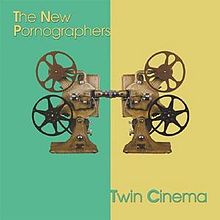
(Heh, I just noticed all three of the New Pornographers albums on my list are named after their opening track.)
Best Song, Mass Romantic: The title track is beaten out by “Letter From an Occupant,” a tour de force from Neko Case.
Best Song, Twin Cinema: Perhaps my favorite ride this band has taken me on is the journey of “Sing Me Spanish Techno,” although I want to give some props here to Dan Bejar for what is my favorite of the New Pornographers songs penned by him, “Jackie, Dressed in Cobras.”
 7. Franz Ferdinand
7. Franz Ferdinand
Franz Ferdinand
2004
I’ve spent quite a bit of time talking about dance-punk in this list, and Franz Ferdinand’s debut album is the apex of the genre. It’s rare for a band to emerge this fully formed on their debut; everything about this album is tight and perfect. Punchy and memorable riffs, a tempo that never lets up, great harmonizing, tight song structures.
It’s surprisingly varied, too, both in tone and content. Compare the straightforward kick of “This Fire” to the slinky riff in “Darts of Pleasure,” for example. The quiet build of “Jacqueline” before it bursts into full-throttle rock. The piano on “Auf Asche.” The aggressiveness of “Cheating on You.” “Take Me Out” starting out as a great punk song before taking a left turn into becoming a great funk song.
All the usual subjects of the genre are here, although with some twists: drugs, sure (“Darts of Pleasure,” I think) and the opposite sex (“Tell Her Tonight,” “Take Me Out,” “Auf Asche,” “Cheating on You”), but also, the same sex (“Michael”), songs that should have become sports anthems (“This Fire”)… And then, there’s “Matinee”, which covers a little bit of everything: “Half the boys I hate / All the girls I hate”; a particularly British-rock-band notion of success (“So I’m on BBC2 now / Telling Terry Wogan how I made it and / What I made is unclear now / But his deference is, and his laughter is”).
I just want to mention that in 2004, queerness was still kind of a daring step for a band, especially in a genre so often rooted in male aggression. It was certainly possibly to be openly gay in your music (see the Scissor Sisters), but the public still had a lot of discomfort about bisexuality, or anything existing in the space between narrow binaries. With the memory of 2004 being the year in American history where Karl Rove and George W. Bush leveraged gay marriage to win re-election, our boys from Glasgow embracing fluid sexuality is all the more remarkable. Franz Ferdinand weren’t just stylish, they were unafraid, embracing everything about themselves to create a perfect album.
This album made me want to start a band called The Power Suits, just playing tight, punk- and disco-inspired rock to make people sweat on the dance floor. (In, of course, power suits.) The epitome of cool, as hip and stylish as I wish I could’ve been in those days. Of course, it lasts because even though it’s of its time, its sense of style is timeless, and its songs are tight and anthemic. They got cat class and they got cat style– and I think they’d appreciate that, even if they sound nothing like that song.
This is the definitive pop-punk album of the 2000s. It’s always better on holiday– and it’s always holiday when this album is on.
Best Song: Well, I have a personal fondness for “Jacqueline,” but… come on, it’s gotta be “Take Me Out,” right? Two jams for the price of one.
6. Of Montreal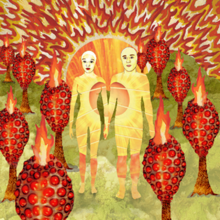
The Sunlandic Twins
2005
“Space travels in my blood, there ain’t nothin’ I can do about it…” That’s from an earlier album on the list (and a much, much earlier song), but I can’t explain why this album speaks to me better than this. The psych-pop of Of Montreal’s previous albums moves into space and time travel on this one, something that pinged the radar of my soul or of my sense that I was some interstellar spirit trapped in an earthbound body or something like that. That boundless energy vibrated in me with every track on this album, in a way I’ve talked about a lot on this list, but that was possibly never done as well on any other album of the time as this one.
Whether it’s the kind of sense of immortality– “I Was Never Young”– or the sense of something new being born– “So Begins Our Alabee”– this was an album that spoke to me, called me to something bigger and better than what I was doing, that my soul screamed out to hear.
Like all good trips to outer space, this one returns to Earth in the end, although with a hopeful message in the album’s last lines: “No, don’t feel sad / ’cause it’s a violent world / but there’s still beauty / I’ll take care of you if you take care of me.”
Best Song: Tough to choose; a lot of days I think it might be “So Begins Our Alabee.” In the end, though, while I never could figure out if they meant the drugs or they meant it in the sense of 1984-meets-The-Matrix, it’s “The Party’s Crashing Us.”
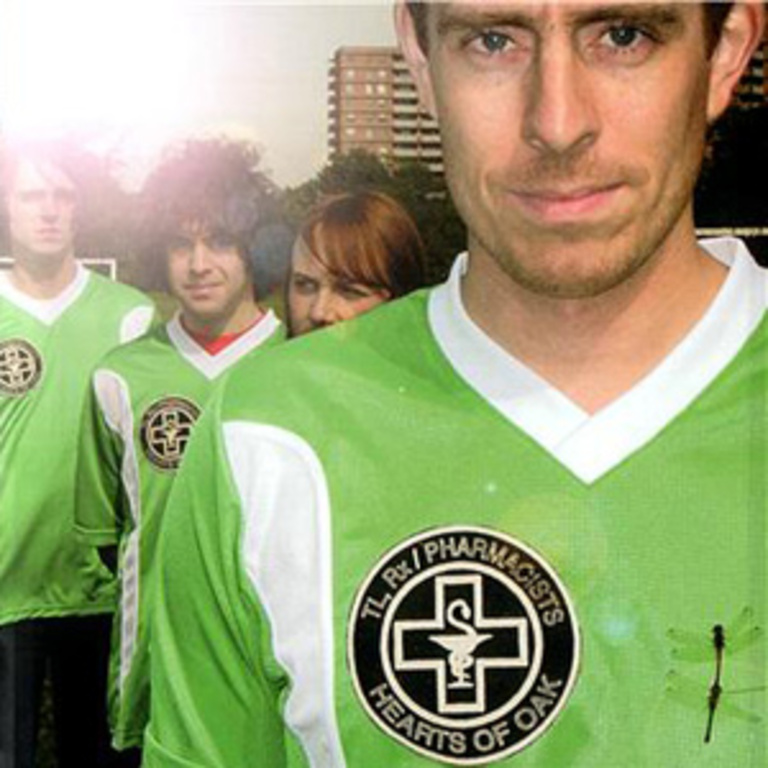 5. Ted Leo and the Pharmacists
5. Ted Leo and the Pharmacists
Hearts of Oak
2003
…I know this might contradict what I wrote about #7, but I wouldn’t call this a “definitive” pop-punk album so much as a personal one. (It does go off the beaten path more than Franz Ferdinand, as well.) Ted Leo’s literate, evocative lyrics create worlds and transport me across time– whether the ugly American traveling the world (“The Ballad of the Sin Eater”) or the fortunate son whose ideals give way to expectations with age (“The Anointed One”) or some mysterious character in a Le Carre novel or perhaps just an old Celtic folk tale (“Tell Balgeary, Balgury Is Dead”). The music, in addition, is certainly varied in edge and tempo and polish, but it all still feels of a creative unity, a pop-punk ethos less slick than e.g. Franz Ferdinand, and probably less universal, but with its own kind of creative energy. At once both personal and epic, the album’s storytelling has always resonated strongly with me, between the energy behind Leo’s music, the pictures he paints with reference and metaphor, and the fact that really no one else was doing this at the time. The worlds of Ted Leo still feel real and alive today, and Hearts of Oak contains more of them than any album before or since.
Dorky anecdote: For a while there when I was struggling with my mental health and drifting in the spaces between college and unemployment, I used to sit up in my studio apartment and play classic NES games on my console (I had one of the top-loading consoles, a redesign to try to revive interest in the platform even as the world moved on to 16-bit). A lot of this time was spent listening to Hearts of Oak and playing Dragon Warrior IV, still one of my favorite RPGs ever and one of my favorite storylines in a video game ever. I think one reason I love Hearts of Oak is that, perhaps because of this association or perhaps because of the times and places the album itself travels with its storytelling (or both, of course), it’s always stirred the sense of adventure in me.
My biggest regret in 2018 was not being able to see the 15-year-anniversary tour for this album. It wasn’t coming anywhere near me, but if my job had been such that I could take the time to fly to Boston or Chicago or wherever just for a weekend to see the show, I would have.
Best Song: “Where Have All the Rude Boys Gone?” was the big single and would be the popular choice, but for my money, it’s one of two consecutive tracks on the back half of the album. Depending on my mood, it could be either “2nd Ave, 11 AM”— I’m pretty confident the only song on this entire list that references Guy Debord, and definitely the only one that references Debord and John Updike in the same verse– or “Tell Balgeary, Balgury Is Dead.” Instead of actually choosing, however, since I picked “Balgeary” as the playlist representative for the EP of the same name, I picked “2nd Ave” for this album, so that you can hear both!
4. Modest Mouse 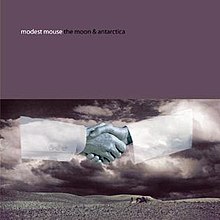
The Moon and Antarctica
2000
Even if I didn’t do it justice, I wrote so much about this album once already that I certainly couldn’t do it more justice here. Isaac Brock’s existentialism still rings true as ever to me.
Best Song: “Lives.”
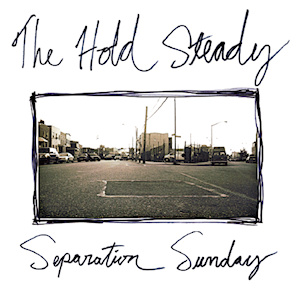 3. The Hold Steady
3. The Hold Steady
Separation Sunday
2005
The whole world keeps trying to tell me Boys and Girls in America is the better album, but I don’t buy it. Give me Separation Sunday all day and twice on… (“You were gonna say ‘Sunday,’ weren’t you?” “I walked right into that one.”)
I love this album because it’s intimate and personal and specific and puts us in the action in a way Boys and Girls in America doesn’t. As befits their titles, Boys and Girls in America is a bunch of general anecdotes about living young; Separation Sunday is about one specific story, the journey of one Catholic schoolgirl into a seedy underworld of drugs and skeezebags and all-night parties and scenes even stranger than that, and back out once more to be born again (and not by the banks of the Mississippi River). I’ve never cared as much for Boys and Girls in America, seeming like more of an overly broad statement about its title subject. (Boys are like this, girls are like this; they all like to party, here are some references to drugs.) Separation Sunday is such a specific and intensely personal journey for its main character, driven by a band many have compared to classic Springsteen; I don’t know how well that works, but I do know this album was a throwback to what might be considered Classic American Rock and Roll in a way that was nearly invisible in the indie scene at the time.
Perhaps counter-intuitively, in committing to specificity, Separation Sunday aims for the mythological and succeeds. Our players have grandiose names, from Gideon to Charlemagne to Casanova to our heroine, Hallelujah (the kids call her Holly). Those kind of details add to the feel of the story, both a coming-of-age story relatable to anyone and the kind of grand legend that only happens once in history. That story is Holly’s story, looking for salvation or meaning or some form of answers to the grand questions that begin forming in us in adolescence and take us through our teenage years and young adulthood, and looking, as many of us do (read: as I did), in the underbelly of society and the druggy scenes and among the people who seemed to have achieved some higher plane by dropping out of ordinary life and taking chemicals until they saw God.
It’s such a personal story, it feels real, sometimes from Holly’s perspective but sometimes from the people who interact with her (“Your Little Hoodrat Friend”) or with the observer. The story bounces back and forth, not always temporal (look for a line in “Stevie Nix” that throws forward to the final two tracks), but sticking to the arc of Holly in remarkable fashion, and is sonically ordered in that regard as well.
Craig Finn’s lyrics are precise and detailed and pepper the story with indelible images, from the titular character of “Your Little Hoodrat Friend” and her “tiny little texts etched into her neck that said Jesus lived and died for all your sins,” to “he came into the ER drinking gin from a jam jar,” to the camps by the river, “where he was breaking bread and giving thanks / with crosses made of pipes and planks / leaned up against the nitrous tanks.”
The tension between the religiosity of the album and the reality it lives in: “Youth services always find a way to get their bloody cross into your druggy little messed up teenage life.” An old rocker and partier jaded– and in appropriate fashion for 2005: “At least in dying you don’t have to deal with New Wave for a second time.” And what sums the human condition, especially for the people who live to party, than “some nights we just need to get touched / and rub up against something plush / some nights it’s just a crush / and some nights it’s just bloodlust.”
But perhaps my favorite line that is heartbreakingly poignant in its pinpoint precision about Holly’s struggle to and failure to find real connection, in the final track: “She said, I’ve laid beneath my lovers / But I’ve never gotten laid.” That final track is the pinnacle of Holly’s journey, having descended into the underworld (figuratively and possibly literally) and having hit the rock bottom necessary to rise back to the top– appropriately enough, by returning to her old church on Easter Sunday. Our Catholic girl completes her journey as the Christ figure of this album, returning to the world of the living, still a mess, but older (“She’s been disappeared for years / Today she finally came back”) and with the sense of being wiser for it and the self-assurance that comes from that, as well as the knowledge that those times are over. (“She said, don’t turn me on again / Yeah I’ll probably just go and get myself all gone again.”)
So many albums and songs I’ve listened to shaped my outlook and wove themselves into my DNA, but looking back, many of them seem to be a part of the past. Holly’s story feels real, it feels alive and timeless, a quality which hasn’t faded yet and which I imagine will last for many more years. It’s a coming of age story, and as long as humans exist, humans will be growing up. Humans will be going out and discovering new things and making mistakes and trusting the wrong people at least once and learning from it and growing older and moving on. That’s why Separation Sunday endures.
Even having said all that: In the final analysis, what keeps me coming back to Separation Sunday is how that sense of the personal and specific applies to me, how much of my own journey I saw in Holly’s, in the strange nights and strange characters and chasing a godly high and finding people who called themselves preachers and offered rebirth in a tab. In many ways, it feels like it was written about or at least for my anima. How can I deny that?
Lord, what would you prescribe / To a real soft girl who’s had a real hard time?
Best song: There’s that big, meaty riff that opens “Hornets! Hornets!”, the punky jam of “Your Little Hoodrat Friend”, or the most vivid image on the album, Minneapolis’ own weird version of John the Baptist with his camp along the river in “Banging Camp.” But for me it’s the last track, “How a Resurrection Really Feels,” the triumphant return of Holly to the living, a bit older and wiser, that still makes my hair stand on end.
2. Kanye West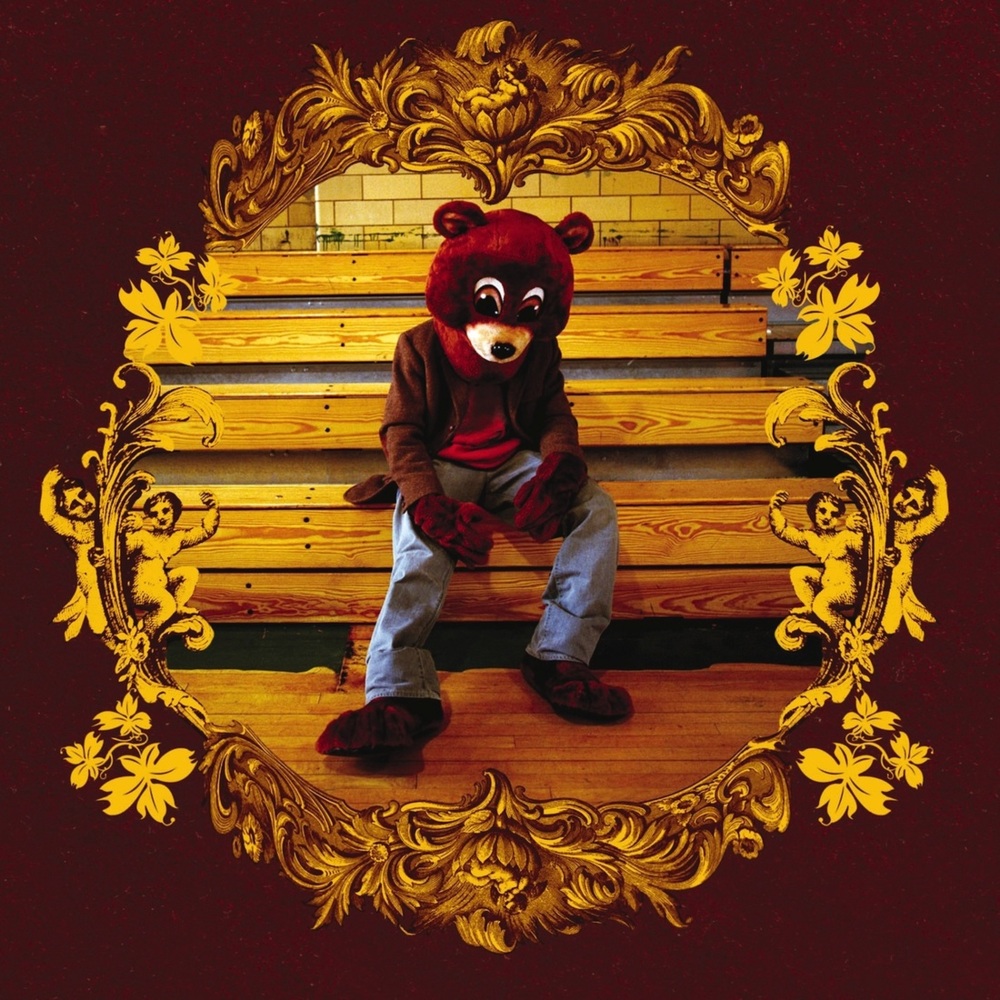
The College Dropout
2004
I miss the old Kanye / That full of soul Kanye / Could crack a joke Kanye / With no e-go Kanye
One reason The College Dropout is one of my favorite albums is that this is my favorite version of the Kanye West persona: Talented as ever as both a rapper and a producer, but hungry, humble, and with the sense of humor both silly and self-deprecating that he would unfortunately largely lose with time.
On that silly and self-deprecating sense of humor: On the former point, there is, of course, “She got a light-skinned friend look like Michael Jackson / Got a dark-skinned friend look like Michael Jackson” from “Slow Jamz,” or the references to the movies of Adam Sandler (“Jesus Walks”: “sayin’ ‘We eat pieces of shit like you for breakfast’ / Huh? Y’all eat pieces of shit?”) and Mike Myers (“The New Workout Plan”: “Allow myself to introduce… myself”). And on the humility– well, do you think Kanye today would ever admit, as he did on “Family Business, that “I used to pee in the bed”? Or that Mr. Kim Kardashian would be grateful for a partner who was loyal and didn’t chase fame? (“She was with me before the deal, she’d been tryin’a be mine / She a Delta, so she been throwing that Dynasty sign”)
The humbleness and self-awareness makes for outstanding critiques of the materialism and striving that define American society; some of that is evident early on, with tracks like “All Falls Down” critiquing both material consumerism and the idea that a successful life is defined by getting a college education and using it to elevate oneself into the Outer Party class where said material consumerism could be achieved. (The title The College Dropout isn’t just Kanye describing himself; it’s a direct refutation of the idea that there is only one path to success and fulfillment, and it’s through higher education and the white-collar materialism that follows.)
“Spaceship” follows it, and that track contains both Kanye’s frustrations with the working grind and the insultingly racist way he was treated when he worked at the Gap. (“They take me to the back and pat me / Asking me about some khakis / But let some black people walk in / I bet you they show off their token blackie.”) “Spaceship” also contains verses from GLC and Consequence, two rappers who seemed like their careers were going to take off well before now, but it never materialized in they way they hoped. That kind of detail and looking back– not necessarily embittered, but with that hard-won wisdom that comes from a taste of what might have been and seeing it go away– gives the track extra depth and poignancy.
Kanye’s mix of serious critique of materialism and goofy fun goes throughout the album: Sometimes it’s both, as with “The New Workout Plan,” a satire of the pressure put on women to maintain a physical ideal, and an equal satire of what the goal of doing so is supposed to be. (Kanye was much more blunt on Late Registration‘s “Gold Digger”– and I’ll just use this space to add that although the whole critical community loves those two followup albums, I’ve never cared as much for the rest of the College Trilogy as the original: Kanye’s megalomania already started to show up there, his concerns about materialism being subsumed by his concerns about the material, going from rapping about “single black female addicted to retail” to calling himself “the Louis Vuitton Don.” His music didn’t rise up to the challenge of his ego fully unleashed until 2010’s My Beautiful Dark Twisted Fantasy.)
And then there were some classic gangster / hanging out with other rapper jams, my favorite of which are “Never Let Me Down” and “Two Words.” Kanye had an absolutely killer lineup of guest stars on this album, as befits someone who already had produced a number of huge hits: from Jay-Z himself to both MCs of Black Star to Common to Ludacris to Jamie Foxx. Maybe they knew their friend was a budding superstar; maybe they believed Kanye when he said “I swear, this right here, history in the makin’, man.” He was; it was.
Now to where this album gets personal with me.
Imagine being twenty-four and thinking your life is over.
You may remember my mention of my accident in 2005 in the first article in this series. You may not know what a crucial part The College Dropout played in my recovery.
You may not know how much “We Don’t Care” meant to me in those days. I was supposed to be dead. (A foot or two to the right and I would have been. Less determination in those first 48 hours and I would have been.) But I was alive. I could have been in the hospital for weeks. I was out in twelve days. It would have been possible for me to suffer a spinal injury that would have left me paralyzed. But I willed myself to learn how to do everything from scratch, had to force myself to learn to walk again, among other things. (Ever had to literally use force of will to re-train yourself to have control over your bodily functions so you can take a piss?)
You may not know how “Through the Wire” spoke to me. With my jaw wired shut as I waited for my reconstructive surgery to heal, I found myself dealing with the same struggles as Kanye. I too found myself drinking a Boost for breakfast and an Ensure for dessert (or “diz-zert” as he pronounces it here). Indeed, that might there might drive a sane man biz-zerk; a steel resilience and the will to hold on often being the only things that mattered in those moments.
But most of all, it was that opening line, literally delivered through the wire: “Yo, Gee, they can’t stop me from rapping, can they?” I resolved to be as determined as Kanye was, to get back to business and back to life as soon as possible, to heal as quickly and as well as possible. “Not to worry, Mr. H-to-the-Izzo’s back to wiz-ork.” I wasn’t producing hit Jay-Z singles, merely playing online poker, but I was just as determined to get back to work and get back to the life I wanted to lead. “But I’m a champion, so I turned tragedy to triumph.” If Kanye could do it, I could do it.
(And though I never made as much of it long-term as I had hoped to– there’s something about getting so close to death that short-circuits long-term planning, that makes it hard to think about a day beyond today– my 2006 performance at the World Series of Poker suggested I had made it back in a way that shouldn’t have been possible from where I was coming from, let alone in such a short time.)
We wasn’t supposed to make it past twenty-five. Joke’s on you, we still alive.
Best Song: This is extraordinarily hard because there are so many worthy answers. “Slow Jamz.” “Jesus Walks.” “The New Workout Plan.” “We Don’t Care.” “Never Let Me Down.” “Two Words.” “All Falls Down. “Spaceship.” It’s an extraordinary album, with Kanye’s stellar production and layering of humor, social consciousness, and personal tragedy throughout elevating it to be one of the greatest albums of its time. In the end, and especially what it meant to me through those difficult weeks and months of coming back from the dead, I chose “Through the Wire.”
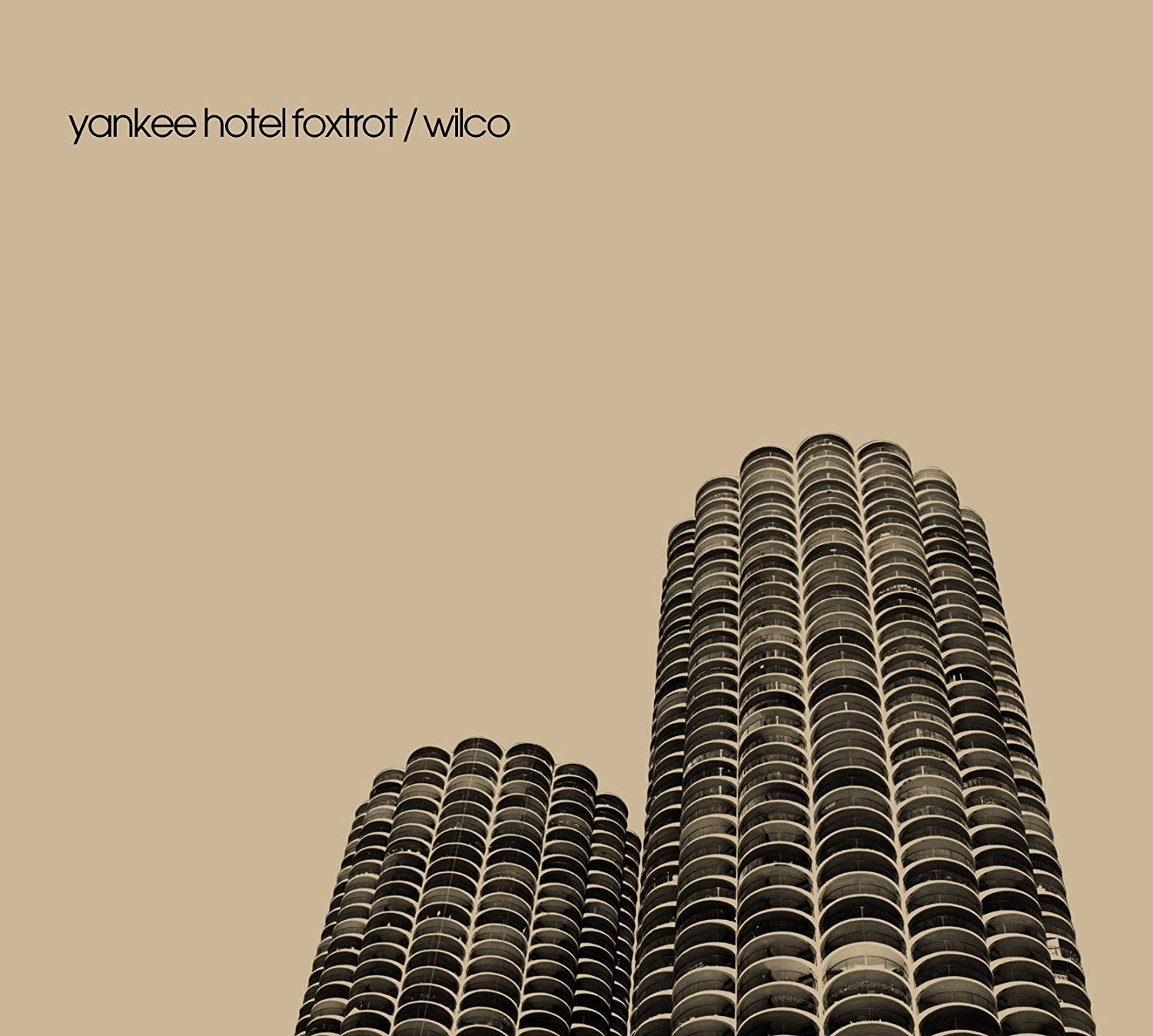 1. Wilco
1. Wilco
Yankee Hotel Foxtrot
2001 unofficially; 2002 officially
What can I say that I haven’t said already? This album, originally slated for release September 2001, is that great tearing asunder of rock music, revealing the otherworldly beneath. You know how I feel about this album, and if you don’t, get thee to reading forthwith.
Best Song: The emotional catharsis of “Poor Places” comes close, but the song that best defines this album, this album that best defines an era, is “Ashes of American Flags.”
I wanted to close by saying thank you for reading this and taking this journey with me. It’s been an intense project; I started working on it two months ago to make sure it would be finished in time, and even then I cut it closer than I would have liked to. But it’s been both a deeply personal and a deeply valuable project to me: It’s not only allowed me to elucidate and refine the thoughts that have been bouncing around in my head about my favorite music for all these years; it’s allowed me to reconnect with that music, to rediscover the joie de vivre it brought me. It’s been a haul to write all of this, to be sure, but ultimately, this project was invigorating in a way even I didn’t see coming when I started it. Thank you all who walked down this path with me this week.

